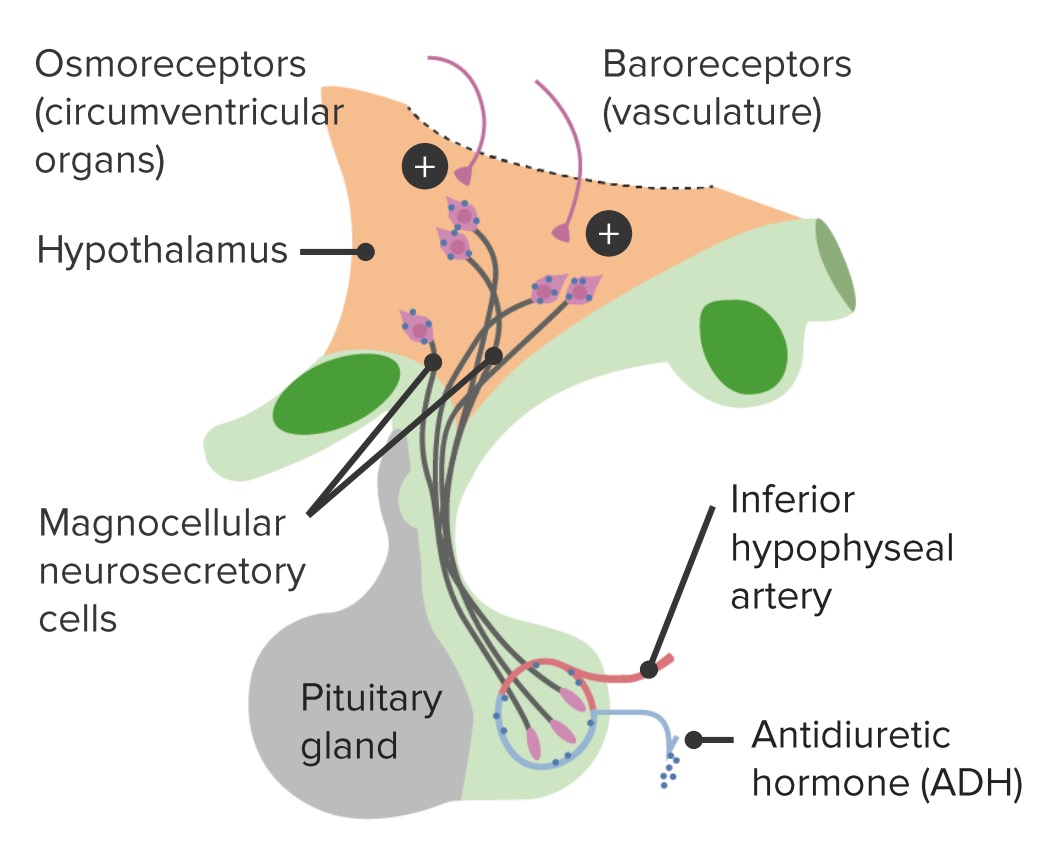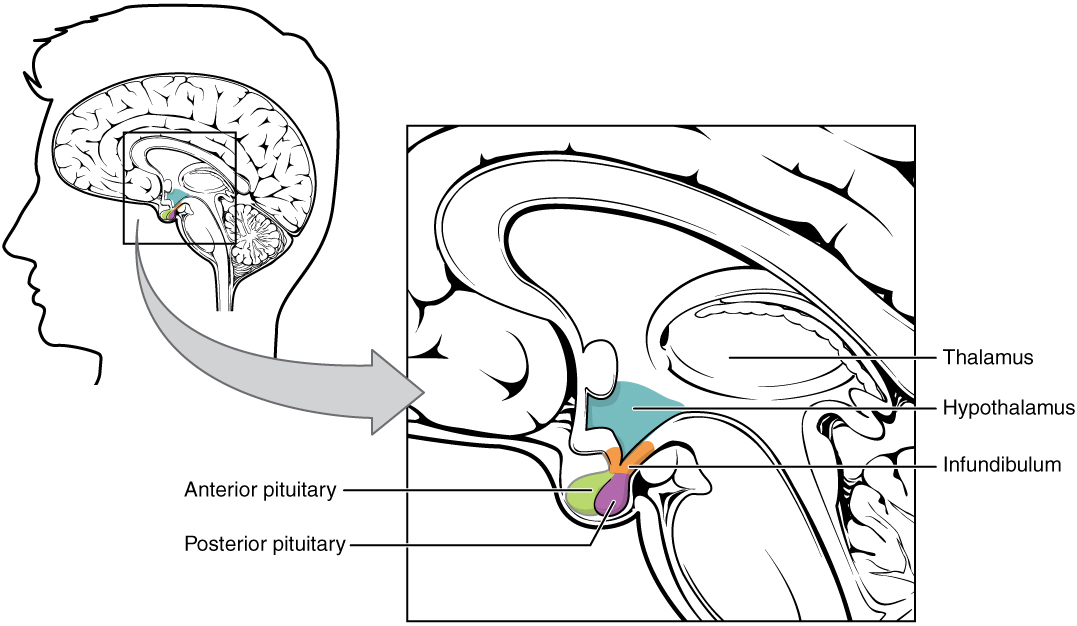Playlist
Show Playlist
Hide Playlist
Dysregulation of ADH
-
Slides ActionOfADH EndocrinePathology.pdf
-
Download Lecture Overview
00:02 Let’s talk about dysregulation of ADH. 00:05 ADH dysfunction, either deficiency central diabetes insipidus or receptor dysfunction for ADH. 00:17 Nephrogenic diabetes insipidus is going to release… is going to result in what type of urine? Good, diluted urine. 00:26 What’s your urine osmolality in these patients? Always decreased. 00:31 What’s your plasma osmolality in these patients? Always increased. 00:38 Who are my patients? Central or nephrogenic diabetes insipidus. 00:44 In either case, you’ll have ADH dysfunction, it’s not working properly. 00:51 Inability to concentrate the urine, what kind of urine again? The diluted urine. 00:58 This patient is going to have polyuria, increased frequency. 01:02 Right off the bag, this gives you a differential known as diabetes mellitus. 01:05 How can you tell the difference? In diabetes insipidus, you wouldn’t have any hypoglycemia, your glucose cell were perfectly normal. 01:14 However, polyuria is definitely present and polydipsia. 01:18 Now, in psychogenic polydipsia... psychogenic polydipsia, what’s that mean to you? Have you heard of primary polydipsia? Psychogenic, meaning to say that the patient might be of schizophrenic type and therefore, may feel the need to be drinking water all the time. 01:38 Why am I bringing that up? Because if you are drinking water all the time, let’s just say right now, you just take an entire litre of water and you just start guzzling it. 01:48 This is a patient or you or me, it doesn’t matter, we’re going to produce diluted urine. 01:53 What kind of urine do you have in diabetes insipidus? Diluted urine. 01:56 So, what’s the difference? Take a look at the note. 01:59 The note is, if your patient has primary polydipsia, psychogenic polydipsia, you’re drinking all that water as oppose to diabetes insipidus when you’re drinking water by itself, your plasma osmolality will be low. 02:14 I began this section by asking you what’s my plasma osmolality in a patient with diabetes insipidus? Always high. 02:22 Is that clear? So, what’s your next step of management here? Do not give drugs, it’s a water deprivation test. 02:30 But, what if your patient was schizophrenic? It doesn’t matter, it’s water deprivation, you will contain your patient and deprive your patient of water. 02:40 Now, not eternally, of course, but to see as to what then happens to your changes within the urine and plasma osmolality. 02:47 Now, diuresis results in dehydration. 02:53 When there’s dehydration, there will be relative hypernatremia and if the patient is unable to maintain adequate water intake, impaired thirst mechanism or lack of access to water are two things that you’re thinking of. 03:08 So, here, we have two more differentials, but this is in reference to the plasma osmolality. 03:16 Pay attention to this bullet point. 03:18 Plasma osmolality is increased in diabetes insipidus either central or nephrogenic, it does not matter. 03:27 If your patient does not have access to water because, oh my goodness, they’ve been dropped in the middle of the desert, haha, their plasma osmolality will be elevated as well. 03:38 How can you tell the difference? Oh, urine osmolality. 03:44 Urine osmolality in a patient who doesn’t have access to water is going to be increased, it’s concentrated urine. 03:52 In diabetes insipidus, what is urine osmolality always? Decreased, decreased, decreased.
About the Lecture
The lecture Dysregulation of ADH by Carlo Raj, MD is from the course Pituitary Gland Disorders.
Included Quiz Questions
In a patient with untreated diabetes insipidus, what is the expected osmolarity of the urine and plasma, respectively?
- Hypoosmolar, hyperosmolar
- Hyperosmolar, hyperosmolar
- Hypoosmolar, hypoosmolar
- Hyperosmolar, hypoosmolar
- Normoosmolar, hyperosmolar
What is the main cause of polyuria in patients with diabetes insipidus?
- Inability to concentrate urine
- Increased water intake
- Decreased response to thirst
- Increased plasma osmolarity
- Decreased plasma osmolarity
A patient presents with increased plasma osmolarity and increased urine concentration with oliguria. Which condition is the most likely diagnosis?
- Dehydration
- Diabetes insipidus
- Psychogenic polydipsia
- Impaired renal water absorption
- Diabetes mellitus
Customer reviews
5,0 of 5 stars
| 5 Stars |
|
5 |
| 4 Stars |
|
0 |
| 3 Stars |
|
0 |
| 2 Stars |
|
0 |
| 1 Star |
|
0 |





